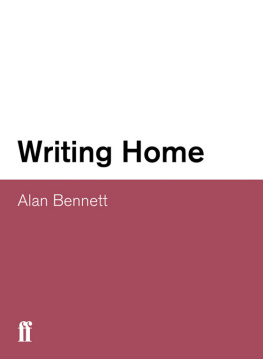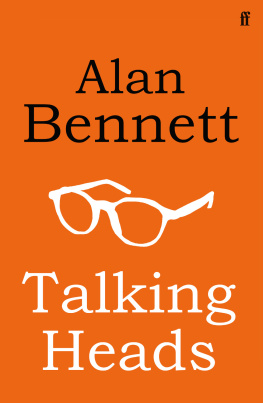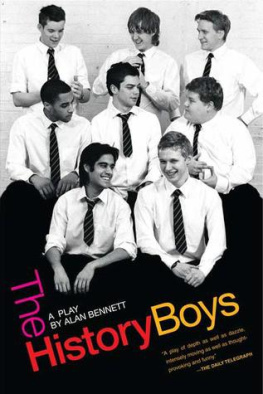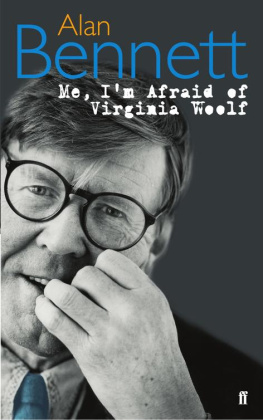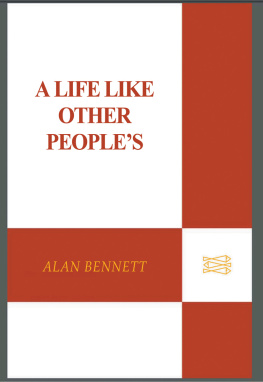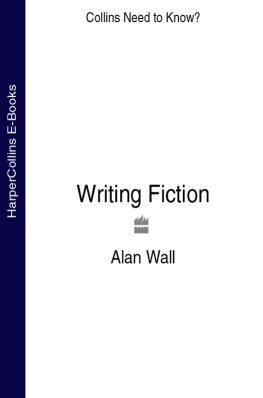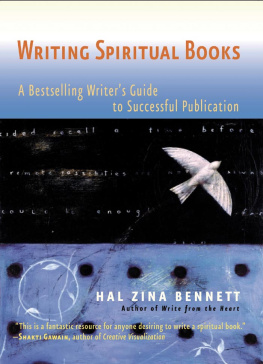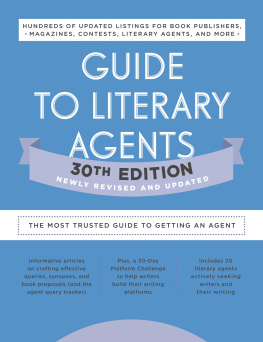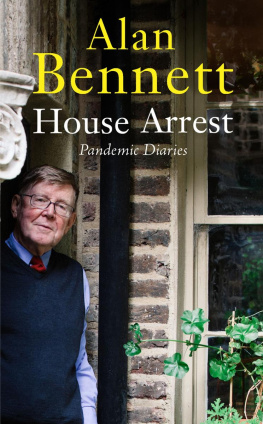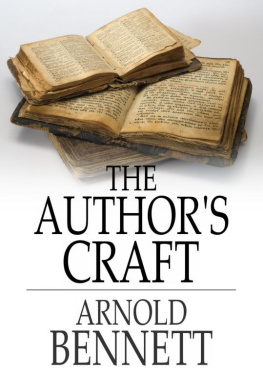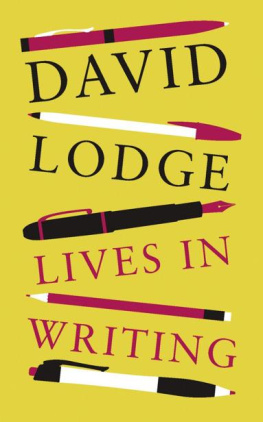In a Manner of Speaking
This book brings together the talks, diaries and occasional journalism that I have written over the last twenty years or so, mostly for the BBC or the London Review of Books. I have called the book Writing Home, though there is plenty here that has nothing to do with home and some of it, looked back on, that seems not to have much to do with me.
Most of the journalism was grudgingly undertaken, in particular the book reviews, which were teased out of me (in both senses) by my friend Mary-Kay Wilmers, the present editor of the London Review of Books. There are writers, Im told, who dash off these occasional pieces with ease and pleasure before turning back, reinvigorated, to the job in hand. Not me, Im afraid. Book reviewing is not my element, demanding a breadth of reading and reference that I generally do not have and which writing plays seldom requires; the result is I find myself either covering up or showing off, while at the same time opting to write in what I imagine to be a metropolitan mode.
That I should admit to having a choice in the way I write isnt an advertisement for versatility so much as an anxiety about sincerity, and it takes me back to a not quite primal scene of my youth.
I was born and brought up in Leeds, where my father was a butcher. As a boy, I sometimes went out on the bike delivering orders to customers, one of whom was a Mrs Fletcher. Mrs Fletcher had a daughter, Valerie, who went away to school then to London, where she got a job with a publishing firm. She did well in the firm, becoming assistant to one of the directors, whom, though he was much older than she was, she eventually married. The firm was Faber and Faber, and the director was T. S. Eliot. So there was a time when I thought my only connection with the literary world would be that I had once delivered meat to T. S. Eliots mother-in-law.
A few years later, when my dad had sold the shop but we were still living in Leeds, my mother came in one day and said, I ran into Mrs Fletcher down the road. She wasnt with Mr Fletcher; she was with another feller tall, elderly, very refined-looking. She introduced me, and we passed the time of day. And it wasnt until some time later that I realized that, without it being one of the most momentous encounters in western literature, my mother had met T. S. Eliot. I tried to explain to her the significance of the great poet, but without much success, TheWaste Land not figuring very largely in Mams scheme of things.
The thing is, I said finally, he won the Nobel Prize.
Well, she said, with that unerring grasp of inessentials which is the prerogative of mothers, Im not surprised. It was a beautiful overcoat.
I can imagine that meeting: Mam smiling desperately, as she and Dad always did when they were out of their depth; nodding a good deal, too, so as not to have to speak; and, if she has to contribute, trying to speak properly, though without putting it on putting it on being one of the (several) charges Dad had against my mothers sisters, Auntie Kathleen and Auntie Myra, both of whom nursed pretensions to refinement and who never knew, in Dads words, when to keep their traps shut. It would have taken more than T. S. Eliot to silence them.
Having said goodbye to Mrs Fletcher and the refined gentleman (whoever he was), Mam would have come away wishing she had a bit more off i.e. more confidence and regretting that she and Dad hadnt been educated, believing as they always did that education was a passport to social ease and that had they been able to stop on at school everything would have been different.
It wouldnt, of course: it was class and temperament, not want of education, that held their tongues; stopping on at school might have loosened them a little but it never entirely loosened mine, and I stopped on at school one way or another until I was twenty-eight. Thirty years on, this book still shows traces of speech difficulties they passed on to me. What am I doing in book reviews, for instance, but trying to speak properly? What is writing sketches if not putting it on? Just be yourself, my parents would say, ignoring the fact that this was something they themselves seldom managed to be, at any rate in company. Funny and voluble on their own, the slightest social pressure sent them into smiling, nodding silence. But it was different for me, they thought. I was educated; I could be myself; I had a self it was not embarrassing to be.
So I see this awkward encounter with Mr Eliot as a kind of parable, a prefiguring of how, when I did eventually start to write, it should be in two different voices, metropolitan (speaking properly) and provincial (being yourself), and that if one takes T. S. Eliot to represent Art, Culture and Literature (all of them very much in the upper case) and my mother to represent life (resolutely in the lower case), then what happened at the end of Shire Oak Street that morning nearly forty years ago went on happening when I started to write plays and is still happening between the covers of this book.
It wasnt that I had any particular affection for the works of T. S. Eliot. I had seen, though not entirely understood, TheCocktail Party when it came to the Leeds Grand Theatre on its provincial tour, and also Murder in the Cathedral done at a local church. I had even read Notes Towards a Definition of Culture, but only because I was soon to try for a Cambridge scholarship and it seemed the kind of thing one was expected to read. And just as one read what one was expected to read, so, when I started very haltingly to write, I wrote what one was expected to write: not, that is, about life, in my case the life of a northern town provincial, dull and at that time, the late 1950s, largely unwritten about but the life that I had read about in books or seen at Saturday matines at the Grand Theatre metropolitan, literary and middle-class. Admittedly these first efforts only took the form of sketches and parodies which I performed at concerts in my college at Oxford, but they led in 1960 to my collaboration in the revue Beyond the Fringe.
Whether Beyond the Fringe was satire was much debated at the time. It scarcely mattered, as there was no debate about how funny it was, though I had a sneaking feeling that some of my contributions were less so and more earnest than the rest. After a spell in the West End the show went to America in 1962, where, despite opening in New York during the week of the Cuban Missile Crisis, it was a great success. Towards the end of 1963 it was decided to revamp it, and, with the addition of some new sketches, the show went into a second edition. It was perhaps the earnestness coming out, and also because I had been away from home for more than a year, that made me decide for the first time to try to speak and write in a voice that was my own, rather than putting one on. I was going to be myself.
What I chose to do was a monologue about death, and in particular death and its supposedly comic aspects in the North of England. Now in 1963 death was not the subject of lively interest it has since become, and even today its hardly big on Broadway. This was also death as met with in Morecambe and Blackpool, neither of them settings which an American audience could be expected to know about or want to. I performed the sketch nightly for six months to the embarrassment of my colleagues and the stunned silence of the audience, and when the revue ended it was nearly ten years before I ventured to write about the North of England again. So much for being myself. The first round had gone to T. S. Eliot.
And he won the second round too, because when I wrote my first stage play, Forty Years On (1968), it had much more to do with art than life, wasnt life at all in fact but the product (and its not to disparage it to say its also the waste product) of years of reading memoirs of literary life, tales of novelists schooldays and the period between the wars. Or, as a character in a later play puts it, somewhat over-elaborately, as he describes a bookshelf:

